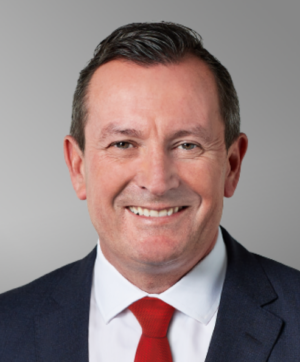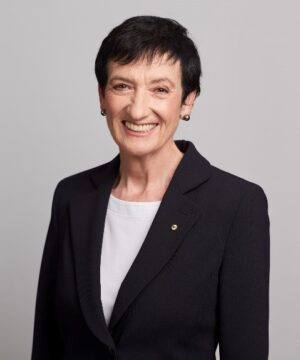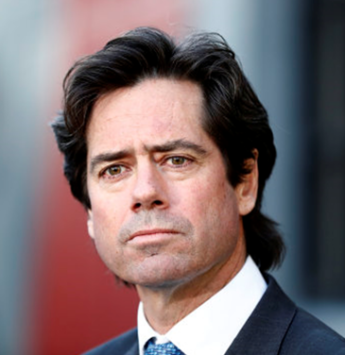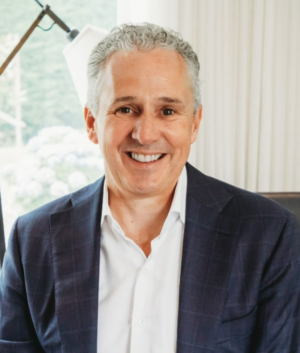In the post-COVID-19 world, the number of retirements from senior executive positions within Australian business and government has dramatically increased.
Delving into some of the recent high-profile resignations in the nation’s government, corporate and sporting world, the Nexus team has endeavoured to ask some key questions.
Why did these leaders in their fields leave their positions? Where have they gone? What do the shifts in these major roles mean for their organisations?
Hon Mark McGowan –> Hon Roger Cook
Last week, on Monday, 29 May 2023, the Premier of Western Australia, the Hon Mark McGowan BA LLB MLA, announced his resignation from parliament. Mark McGowan was born in 1967 in regional New South Wales. He studied Arts and Law at the University of Queensland and joined the Royal Australian Navy where he served as a lieutenant at HMAS Stirling in Rockingham. He started his political career in 1996, when he was elected as the member for Rockingham. He was appointed as Leader of the WA Labor Party in 2012 and secured the biggest parliamentary majority in the state’s history in 2021.
Mr McGowan cited burnout and exhaustion as the key reasons behind his decision to step down as Premier, Treasurer, and member for Rockingham. He declared that leading the state through the COVID-19 pandemic had “taken it out of him” and that he did not have the “energy or drive required to continue in the role as premier” or lead the government through the next election. Mr McGowan has stated that he currently has no plans on what he will do after his retirement. Nexus expects this to change soon and will be watching to see where Mr McGowan ends up next.
Hon Roger Cook BA MBA MLA will replace Mr McGowan as Premier of Western Australia. Roger Cook was previously the Deputy Premier and held the ministerial portfolios of State Development, Hobs and Trade, Hydrogen Industry, Tourism and Science. Mr Cook claims his term as Premier will focus on investing in job opportunities and building the future of the state’s economy.

Alan Joyce –> Vanessa Hudson
On Tuesday 2 May 2023, Qantas Chief Executive Alan Joyce announced that he will retire from the airline in November 2023. Serving as Qantas’ top executive for 15 years, Mr Joyce’s retirement comes after the Board asked him to steer the company through the pandemic and shape the company’s COVID-19 recovery plan. While Mr Joyce faced criticism over the last three years due to widespread lay-offs, flight cancellations, and staff strikes, he also led the airline successfully through the grounding of the fleet in 2011 and the global financial crisis in 2008. Qantas chairman Richard Goyder declared that “much of the credit for the bright future in front of Qantas goes to Alan.” It is currently unknown what Alan Joyce’s plans for the future are after retiring from his current role. This week, the Australian revealed Mr Joyce has formed a business entity called White Emerald Pty Ltd with PwC’s private clients partner Bruce Ellis.
Mr Joyce will be replaced by Vanessa Hudson who will become the 13th CEO of Qantas and the first woman to lead the company. Ms Hudson, who has spent 28 years with Qantas, has held various senior commercial, customer, and financial roles. In 2018 she became the Chief Customer Officer and in 2019 became the Chief Financial Officer. Ms Hudson has the confidence of the Qantas board and major investors due to her seasoned internal management style and her leadership over the 2022 domestic fleet selection process. Ms Hudson claims her focus as CEO will be “delivering for those we rely on and who rely on us – our customers, our employees, our shareholders and the communities we serve.”

Jennifer Westacott AO –> TBA
In February 2023, Jennifer Westacott AO announced her plans to retire as Chief Executive of the Business Council of Australia (BCA), one of the nation’s most powerful business lobby groups. Ms Westacott has held the top executive position within the BCA since 2011 and has used her leadership to push for a stronger economy through wages growth, boosted productivity and more highly skilled migrant workers.
Before joining the BCA, Ms Westacott served in the public sector and held positions as the Director of Housing at the Victorian state government, Secretary of Victoria’s Education and Training Department, and Commonwealth Grants Commissioner. She has faced criticism during her leadership for her willingness to work with the Australian Council of Trade Unions and for the BCA’s fluctuating position on climate policy.
Jennifer Westacott agreed to implement a succession strategy and has stated that she would like to move on from the BCA in the next 12 to 18 months and before the next election. Currently, a list of candidates is being considered in the recruitment process to find and transition Ms Westacott’s successor. In April 2023, the Australian Financial Review claimed that Vicki Thompson, the Chief Executive of the Group of Eight, which represents Australia’s research-intensive universities, is considered a potential candidate. Despite no announcement of where Jennifer Westacott will go after stepping down, it can be expected she will continue her role as a senior partner at accounting giant KPMG and as Chancellor of Western Sydney University.

Gillon McLachlan –> Andrew Dillion
AFL Chief Executive Gillon McLachlan announced his resignation from the leadership role in April 2022. Gillion McLachlan started his career as an ALF player for Melbourne University Blues and was also on the Carlton Football Club supplementary list from 1996 to 1997. Mr McLachlan succeeded Andrew Demetriou as CEO of the ALF in April 2014 after serving as Deputy Chief Executive Officer since 2012. He joined the organisation in 2000 and was promoted to Chief Operating Officer in 2008 with oversight over the ALF’s broadcasting and digital media, fixturing, venue agreements and stadium infrastructure. Former Victorian Sports Minister Martin Pakula said that Mr McLachlan’s performance in leading the ALF has been “nothing short of outstanding.”
Mr McLachlan intended to leave his position as CEO before COVID-19 but stayed on to help navigate through the pandemic. His exit date was again extended until the end of the 2023 season, due to the unexpectedly lengthy recruitment process for his successor. The need to resolve the AFL’s major issues, such as a new broadcast deal, collective bargaining agreements for both the men’s and women’s competitions, a new club funding model, and plans for a Tasmanian team, also contributed to Mr McLachlan’s ongoing presence as CEO in 2023. He has stated that he made the decision to step down because “it feels right, right from the AFL, right for my family.”
Andrew Dillion, the AFL’s Executive General Manager Football Operations, Legal & Integrity was announced as McLachlan’s replacement in May 2023. Mr Dillion has been on the AFL’s general Council since 2011 and played for Old Xavierians Football Club from 1989 to 2005.

Andrew Penn –> Vicki Brady
On Thursday 30 March 2023, the Chief Executive Officer of Telstra, Andrew ‘Andy’ Penn announced his intention to retire from the position. Mr Penn became the CEO and Managing Director of Australia’s largest telecommunication company in 2015. He joined the company as Chief Financial Officer in 2012 and has led Telstra through an ambitious period of change to drive digitalisation, grow international markets, and transition Australia to 5G networks.
Before joining Telstra, Mr Penn worked at leading insurance and investment company AXA Group for 23 years, where he held the positions of Chief Executive Australia & New Zealand, Group CFO, Head of Transformation Programme, and Chief Executive International. Mr Penn told staff that while he had mixed emotions about leaving Telstra, he felt it was the right time to step down and that he is “proud that we are appointing a very talented executive from within our ranks as the next CEO.”
Telstra’s current Chief Financial Officer, Vicki Brady, who worked alongside Mr Penn to develop the company’s T25 growth strategy, will step into her new role as CEO in September 2023. Ms Brady joined Telstra in 2016 as Group Executive for Consumer and Small Businesses. Described as “extremely capable” and “well-equipped” to lead by Andrew Penn and Telstra Chairman John Mullen respectively, Vicki Brady must helm the company during the next phase of its restructuring, which involves additional costs and staff cuts. Ms Brady views the continued rollout of and leadership on 5G as well as partnerships with tech giants to find mutual benefits, as the key to Telstra’s future growth.

Changing of the Guard
No matter how well these senior executives steered their organisation through the COVID-19 pandemic and the subsequent recovery, each one of them has achieved great success as leaders in their industries, and has had significant influence over Australia’s corporate, government and sporting landscapes. In a post-COVID-19 world, many senior executives will be looking to their own recovery and growth in 2023 and beyond. The pandemic and the changing attitudes towards flexible work has not only enabled Australia’s top executives to seek out new career opportunities but has also allowed a new crop of fresh, diverse, energetic leaders to step into their shoes.
Latest posts by Nexus APAC (see all)
- United Kingdom General Election 2024: An Overview - April 15, 2024
- Australian Voters Go to the Polls - February 26, 2024
- Secretaries of Federal Departments – An Overview - February 1, 2024



